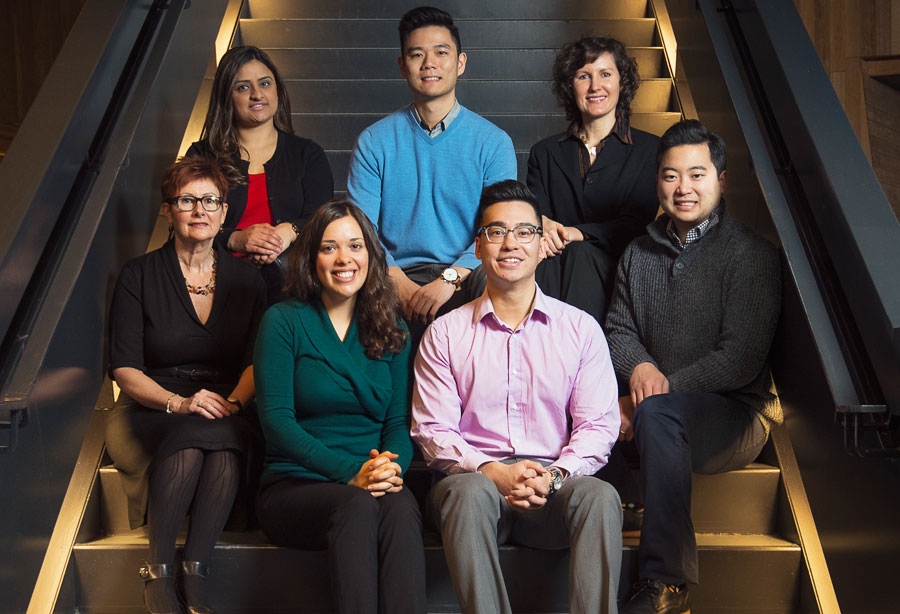Submitted by Barbara Gobis, Director, Pharmacists Clinic, Faculty of Pharmaceutical Sciences
The UBC Pharmacists Clinic was established to achieve a triple mandate as a:
- Model of patient care best-practices
- Site where learners can come for skill development
- Site for evaluation and research
As a team, we were able to clearly see what we were hired to do as described in our vision, mission, job descriptions, roles, etc. However, this is only part of the picture. We needed to be really clear on why we were doing this work and how we were going to work together. Our team has taken the time to define our “why” and our “how” and we continue to invest time and effort in these areas.
The fundamental reason why the Clinic exists is to catalyze pharmacist practice change. This is the underlying reason for our mandate (stated above).
We brought in an organizational coach to help us:
- Understand and respect the strengths and styles of individual team members
- Identify our values which are the basis for our team culture, and
- Identify actions to help us continuously develop our team effectiveness.
Our team culture is how we have identified and agreed that we want to work together. Our culture is in large part determined by our values, which we have identified as: respect, trust, honesty, and fun. Our culture is also determined by the norms we have agreed to on how we want to work together.
We use several guiding principles to assist us in establishing a positive work environment:
- We look up. Everything we do impacts other members of the team, so we get input from others.
- We are curious. We ask questions instead of making assumptions.
- We are problem-solvers. We identify the opportunities and learnings that sometimes are disguised as problems.
- Our strength is in our diversity. Together we can accomplish pretty much anything.
We have established norms for how we communicate with each other via e-mail as well as in-person to ensure we respect each other’s time:
- We use e-mail for two main types of communication that are identified in the subject line as FYI or Action Requested. If action is requested we state the action clearly along with the timeline. This way we can manage e-mail communication and prioritize what we need to read/respond to first.
- We use in-person time in several ways:
- Weekly team meetings (with agendas circulated beforehand and action items circulated afterward)
- Monthly strategic discussions (where we discuss a big topic as a group to deepen our understanding on an issue)
- Working meetings (organized as needed to move projects forward or discuss specific work)
- Check-in meetings 1:1 with supervisors to discuss what is working well, where challenges exist, etc.
- Corridor consultations to share news and gather opinions during the work day
Our pace of work can be intense and the nature of our work (helping people with complex drug therapy needs) can be draining, which is why we need a counterbalance of fun in the workplace. For us, fun usually involves eating and activities. In the past six months, we have had pot-luck lunches, lunch-time board games, skating at Thunderbird arena, Christmas in January (a dinner event), an open house, and a game-show competition. We are entering a team in the Faculty Sports Day (this is our third year) and we are talking about starting a team jogging club.
As the leader, my role is to ensure we are clear on the agreements we have made for ourselves as a team. I am also a custodian of these agreements as we proceed in our daily work together. In my opinion, this foundational work has enabled us to move from being a group of people who work together to being a high functioning team.
Have a story to share about what you’re doing to create an engaging workplace in your department and the impact for staff and faculty? Please send your submissions to communications@hr.ubc.ca
